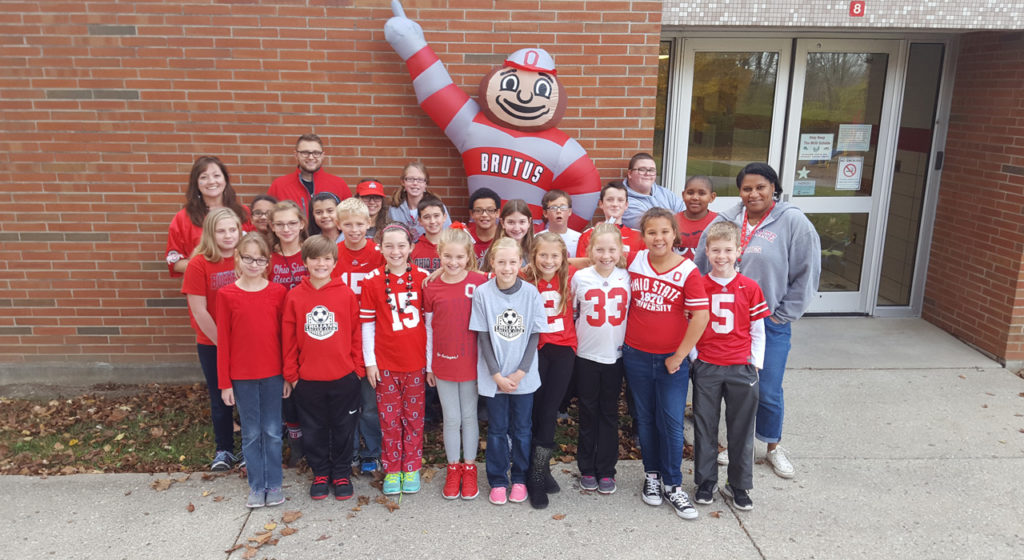Susan Dankworth (’90) did not start her career as a math teacher — and she never dreamed that someday she would win the nation’s most prestigious teaching award.
Yet her energetic, unique approach to teaching math won her the White House’s Presidential Award for Excellence in Math and Science Teaching.
At Ohio State, Dankworth was inspired by the college and its initiatives, including the Educational Programs in Informal Classrooms that trained her to be creative and make lesson plans without textbooks.
She began as a second-grade teacher, then taught language arts and math at Northmont City Schools. When asked to teach fifth-grade math at Hook Elementary, Troy City Schools, it sparked her interest. She wanted to “shake things up.”
Spinning plates
Dankworth dislikes textbooks — “they were never in the right order or very interesting” — and she never repeats a lesson plan. She always asks, “How will we get to what we need to know? How can we make this fun?”
Here is where her “spinning plates act” comes in.
She laughs, saying observers probably think her classroom is either really special or really crazy. “You know in the circus when you get some plates spinning (on poles) and you start another one and you come back to that plate and you spin it some more and you have all of these plates spinning?
It’s like that.”
Inside her classroom
Her classes start with a warm-up and then divide up based on skill level, then come back together for a 10-minute lesson. She describes the final independent activity as the moment when she “pulls out the toys: fraction bars, blocks, colored pencils, scissors. If they can cut it, glue it and talk about it, it is more likely to stick with them.”
She considers math a “spiraling curriculum,” in which concepts build upon foundational skills and “you can never forget anything you have ever learned.” For that reason, she never begins a lesson with an algorithm or formula, but instead encourages students to incorporate concepts they have already mastered when tackling new problems.
The Presidential Award for Excellence
Her ability to transform a lesson on fractions into a hands-on project captured the attention of her principal, Penny Johnson, who nominated her for the award. “If you walk into Mrs. Dankworth’s room, you will not see a ‘typical’ math class. You will see kids sitting on the floor working on advanced math problems. You will see Mrs. Dankworth moving around the room, listening, watching, correcting, assisting, challenging, joking, cheering, and you will know she cares deeply about every one of those children.”
The National Science Foundation, which reviewed her application and videos of her teaching, noticed her unique style as well.
Notified of the award last August, Dankworth experienced a whirlwind of local and national press interviews. Soon, she was in the nation’s capital,
being honored with other awardees. They attended professional development programs and discussed with
policymakers how to improve mathematics and science education.
Looking toward the future with STEM
Today, Dankworth strives to meet the daily expectations of her success. She works to make everything in her classroom “interesting and noteworthy.”
Exploring ways to use technology in her classroom excites her, and she looks forward to implementing STEM programs throughout her district to reach all students.
She calls the award a “lesson in humility,” and has made it her personal mission to give kids opportunities: to make choices, take the lead on projects and explore the overlap between STEM principles and pure fun.
Related
News video: Susan Dankworth receives Presidential Award for Excellence – ABC 22-Dayton

